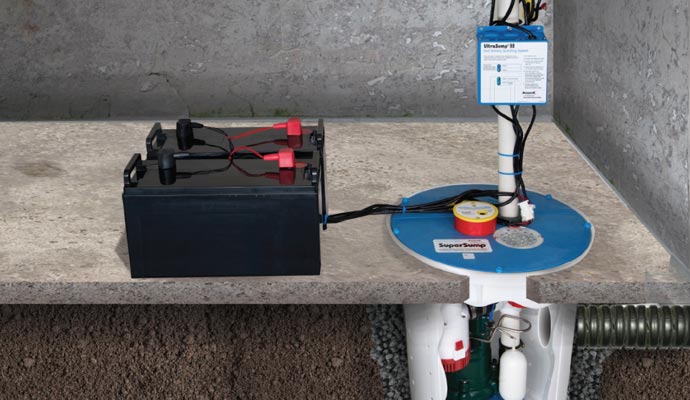Sinking or cracked concrete slab can be a serious problem
A sinking slab (also known as sinking concrete) is always worth fixing, whether it’s located in your basement, garage, driveway or patio. A simple crack in a concrete slab isn’t necessarily a problem.
Cracks are even supposed to occur along “control” joints such as those built into a sidewalk.
When a concrete slab cracks and sinks, this indicates a more serious structural issue. In addition to looking bad, a sinking slab can create an uneven surface that poses a safety hazard. Instead of hoping the problem will go away or worrying about the potential for injuries and even lawsuits, it’s smart to fix a sunken slab.
What causes a slab to sink?
When all or part of a slab sinks, it’s usually due to one of two possible conditions. First off, the soil beneath the slab may have characteristics that make it compress easily. In other words, the weight of the slab pushes down on the soil, causing the slab to sink. Soil erosion can be another cause of a sinking slab. Heavy water flow sometimes washes away soil beneath a slab, which then sinks into the resulting hole or void.
Some contractors recommend repairing a sinking slab by demolishing the damaged area and pouring new concrete. There are several problems with this repair strategy. For starters, it’s expensive and the repair will take at least several days because the fresh concrete must harden and cure before the slab can be used again. But even more importantly, if weak soil caused the slab to sink, the soil may compress again under the weight of the new slab. A shortcut repair –adding more concrete to level or even out the slab—imposes, even more, weight on the soil, increasing the risk of sinking in the future.
Polyurethane Foam Concrete Raisingcan repair your sinking slab quickly & effectively.
What if you could raise a cracked slab back to its proper level in less than an hour, with no “down” time waiting for new concrete or mortar to cure? This fast, affordable way to repair a concrete slab. The process involves drilling one or more small holes in the sunken area of the slab, then injecting an expanding “geotechnical” foam beneath the slab.
As the foam expands due to a chemical reaction, it pushes the slab back towards its original position. Our team can gauge the expanding action of the foam, controlling the injection process for just the right degree of slab-raising action.
Because the injected polymer material cures quickly, the restored slab can return to its full weight-bearing function within a matter of minutes. Slab repair cost by using polyurethane method also costs far less than replacing the concrete slab altogether.
Details
Published: 27 September 2017

















